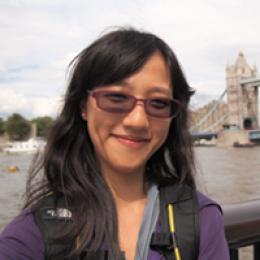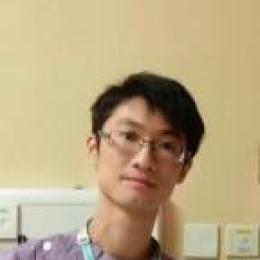
Sept 2026 Entry
1.5 years (Full-time)
3 years (Part-time)
31
This programme is offered within the Postgraduate Scheme in Health Technology.
We have a limited quota for admissions. Early applications are strongly encouraged.
The programme has been selected by the University Grants Committee (UGC) for the Hong Kong Future Talents Scholarship Scheme for Advanced Studies. Local students admitted to this programme can apply for the scholarship, please click here for details.
Early Round: 2025-10-15
Main Round: 2026-01-15
Extended Round: 2026-04-30
Early Round: 2025-10-15
Main Round: 2026-01-15
Extended Round: 2026-04-30
What's New

- Undergraduate

- Undergraduate
Programme Aims
This award is offered within the Postgraduate Scheme in Health Technology, which aims to provide professionals in Medical Imaging, Radiotherapy, Medical Laboratory Science, Health Technology, as well as others interested in health technology, with an opportunity to develop advanced levels of knowledge and skills.
The award in Medical Imaging and Radiation Science (MIRS) is specially designed for professionals in medical imaging and radiotherapy and has the following aims:
A. Advancement in Knowledge and Skill
-
To provide professionals in Medical Imaging and Radiotherapy, as well as others interested in health technology, with the opportunity to develop advanced levels of knowledge and skills;
-
To develop specialists in their respective professional disciplines and enhance their career paths;
-
To broaden students' exposure to a wider field of health science and technology to enable them to cope with the ever-changing demands of work;
-
To provide a laboratory environment for testing problems encountered at work;
-
To equip students with an advanced knowledge base in a chosen area of specialisation in medical imaging or radiotherapy to enable them to meet the changing needs of their disciplines and contribute to the development of medical imaging or radiation oncology practice in Hong Kong; and
-
To develop critical and analytical abilities and skills in the areas of specialisation that are relevant to the professional discipline to improve professional competence.
B. Professional Development
-
To develop students' ability in critical analysis and evaluation in their professional practices;
-
To cultivate within healthcare professionals the qualities and attributes that are expected of them;
-
To acquire a higher level of awareness and reflection within the profession and the healthcare industry to improve the quality of healthcare services; and
-
To develop students' ability to assume a managerial level of practice.
C. Evidence-based Practice
-
To equip students with the necessary skill in research to enable them to perform evidence-based practice in the delivery of healthcare service and industry.
D. Personal Development
-
To provide channels through which practising professionals can continuously develop themselves while at work; and
-
To allow graduates to develop themselves further after graduation.
Characteristics
The Medical Imaging and Radiation Science award offers channels for specialisation and the broadening of knowledge for professionals in medical imaging and radiotherapy. It will appeal to students who are eager to become specialists or managers in their areas of practice. Clinical experience and practice in medical imaging and radiotherapy are integrated into the curriculum to encourage more reflective observation and active experimentation.
Programme Structure
The Postgraduate Scheme in Health Technology consists of the following awards:
-
MSc in Medical Data Science (MScMDS)
-
MSc in Medical Imaging and Radiation Science (MScMIRS)
-
MSc in Medical Laboratory Science (MScMLS)
-
MSc in Medical Physics (MScMP)
To be eligible for the MSc in Medical Imaging and Radiation Science (MScMIRS), students are required to complete 31 credits:
-
2 Compulsory Subjects (6 credits)
-
3 Core Subjects (9 credits)
-
5 Elective Subjects (15 credits)
-
1 Academic Integrity and Ethics Subject (1 credit)
Apart from the award of MScMIRS, students can choose to graduate with one of the following specialisms:
-
MSc in Medical Imaging and Radiation Science (Computed Tomography)
-
MSc in Medical Imaging and Radiation Science (Magnetic Resonance Imaging)
-
MSc in Medical Imaging and Radiation Science (Ultrasonography)
To be eligible for the specialism concerned, students should complete 2 Compulsory Subjects (6 credits), a Dissertation (9 credits) related to that specialism, a specialism-related Specialty Subject (3 credits), a Clinical Practicum (3 credits) and 3 Elective Subjects (9 credits), plus an Academic Integrity and Ethics Subject (1 credit).
Core Areas of Study
Compulsory Subjects
- Research Methods & Biostatistics
- Multiplanar Anatomy
Core Subjects
- Advanced Radiation Protection
- Advanced Technology and Clinical Application in Computed Tomography *
- Advanced Technology and Clinical Application in Magnetic Resonance Imaging *
- Advanced Technology and Clinical Application in Nuclear Medicine Imaging
- Advanced Topics in Health Technology
- Advanced Ultrasonography *
- Digital Imaging & PACS
- Dissertation *
- Imaging Pathology
- Practical Radiotherapy Treatment Planning
* Specialty Subject (Core)
Elective Subjects (Non-HTI subjects 3 credits at most)
- Advanced Medical Image Analysis with Deep Learning
- Bioinformatics in Health Sciences
- Clinical Practicum (CT/MRI/US) *
- Medical Imaging Physics
- Professional Development in Infection Control Practice
- Radiation Therapy Physics
- Radiation Biology
- Molecular and Functional Imaging: From Body System to Molecules (non-HTI subject)
- Knowledge Management for Clinical Applications (non-HTI subject)
- Virtual Reality in Healthcare (non-HTI subject)
* Specialty Subject (Core)
Having selected the requisite number of subjects from the Core Subject list, students can choose the remaining Core Subjects or other subjects available in this Scheme as Elective Subjects.
31
Programme Leader
Prof. Lawrence Chan
PhD
Deputy Programme Leader
Prof. Liang-ting Lin
PhD
-
A Bachelor’s degree in Radiography or a related discipline from a recognised institution. Other qualifications may be considered on an individual basis.
If you are not a native speaker of English, and your Bachelor's degree or equivalent qualification is awarded by institutions where the medium of instruction is not English, you are expected to fulfil the University’s minimum English language requirement for admission purpose. Please refer to the "Admission Requirements" section for details.
For further programme information, please contact:
The General Office (tel: (852) 3400 8578; email: hti.tpg@polyu.edu.hk)
or visit our website at https://www.polyu.edu.hk/hti/study/programmes/taught-postgraduate-programmes_list/
Please click here to download.
HK$7,000 per credit for local and non-local students
(Note: There is no tuition charge for the 1-credit AIE subject.)
HTI Entry Scholarships for Taught Postgraduate Programmes are available. Please visit here for details.
PolyU reserves the right to change or withdraw the scholarship at any time. In case of any dispute/disagreement, PolyU’s decision is final.
Required
Required
Required





